Uncommon Knowledge
Newsweek is committed to challenging conventional wisdom and finding connections in the search for common ground.
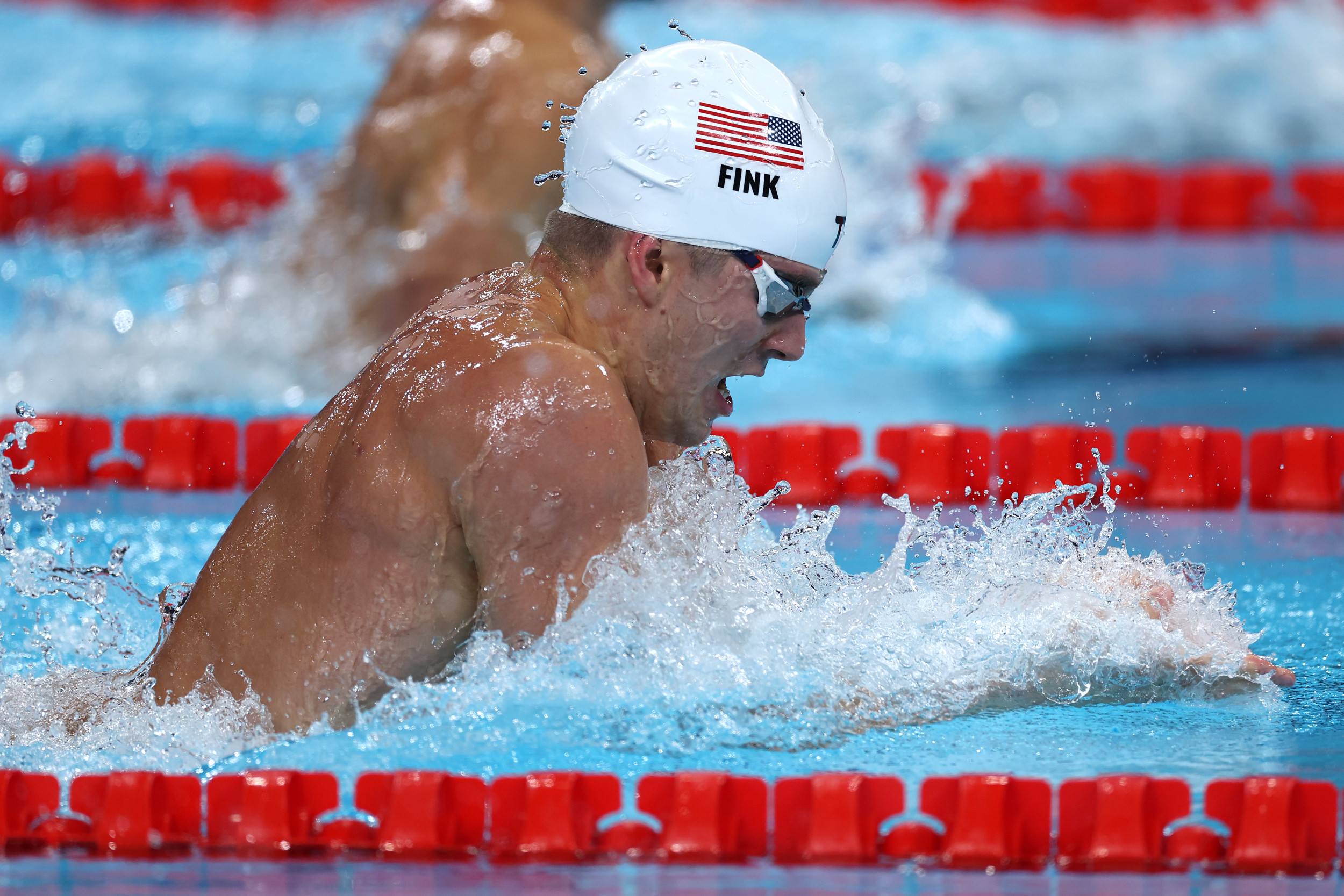
It takes many hours of grueling training and hard work to punch your ticket to the Olympics — but try doing it with a full-time job as well.
U.S. Olympic swimmer Nic Fink tied for silver in the men’s 100-meter breaststroke Sunday, an achievement all the more notable given that Fink spends his days as an assistant project manager for an engineering firm back home in Texas.
Fink, 31, told NBC Monday that he sent out a few emails when he first arrived to the Olympic Village but has since set his status as “out of office.”
“It takes a village,” Fink said. “It’s having my wife, my coaches, my teammates, my friends also the flexibility that works gives me. As long as I get my work done, they’re cool with it and everyone kind of chips in and helps me when they can. I couldn’t be here without all of the help I get.”
Fink earned a master’s in electrical and computer engineering from Georgia Tech after competing in Tokyo in 2021. He works remotely for Quanta Utility Engineering Services from his house in Dallas.
“I thought there was a chance that as I dedicated more time into engineering, perhaps my swimming career would begin to sunset,” Fink told NBC in April. “But finding that balance has actually helped me in both, and my swimming’s been just as good or better than ever.”
For many of the athletes who make it to the Olympics, they aren’t doing it with the backing of a sponsor. They still need a regular income to make ends meet. Those Olympians on billboards and in commercials for Nike, Gatorade and other large companies are not in the majority.
Maggie Steffens, the Team USA water polo captain, took to Instagram in May to crowdsource funding for her trip to Paris.
“Many of my teammates aren’t just badass champions, but also teachers, business owners, coaches, physicians assistants, and more,” Steffens wrote.
“Some may not know this, but most Olympians need a 2nd (or 3rd) job to support chasing the dream (myself included!) and most teams rely on sponsors for travel, accommodations, nutritional support, rent/lodging, and simply affording to live in this day and age.”
Steffens co-founded the water-polo tech firm 6-8 Sports with the Australian water polo player Dani Jackovich. The business partners could end up competing against each other in Paris.
Other Olympians have also started their own businesses. Weightlifter Jourdan Delacruz is a registered dietitian student who started Her Athlete, an evidence-based sports and performance research organization.
In 2023, CJ Allen became just the 14th American to run under 47.60 seconds in the 400 hurdles. As Allen trained for Paris, he earned his master’s in sports science at Life University in Atlanta last September. He is now in the process of launching his own chiropractic practice.
“I’ve had to become a lot more intentional with my time,” he told his hometown paper, The Spokesman Review.
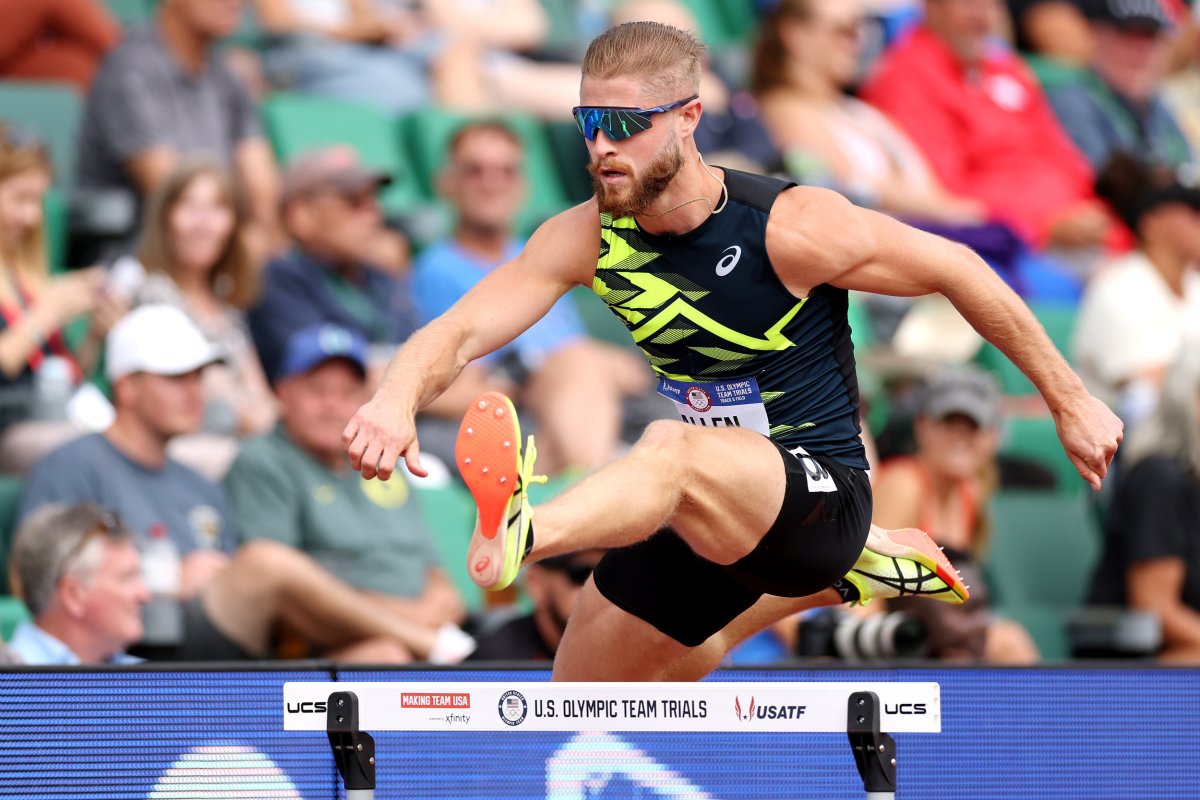
The separation of sport and work has proven to help some athletes, like Andrew Evans, who went to the Olympics in 2016 for track and field. By the time Tokyo rolled around, Evans had moved back home to Michigan and started working at a brewery with his best friend. He watched those Games from his couch. Now, with Evans back on Team USA and set to compete in discus throw, his brewery is cheering him on with a special IPA it dubbed The Comeback Kid.
“I think some of my success this year has come from the fact that I stopped putting so much stock in all of those things I wish I could have had. As soon as I got it out of my head that I needed all that and I need a coach and I needed this and that, I felt like I took more accountability over my own success,” he told the NBC affiliate WOOD.
These are just some of the members of Team USA that marked themselves “out of office” for the two weeks in Paris.
Kat Holmes, a fencer, is working toward her doctorate at the Icahn School of Medicine at Mount Sinai in New York. Nevin Harris, a gold medalist in the canoe sprint, works weekends at the country-themed bar Moonshine Beach in San Diego. Michelle Sechser, who is on the lightweight women’s double sculls rowing team, works full-time for a fintech firm.
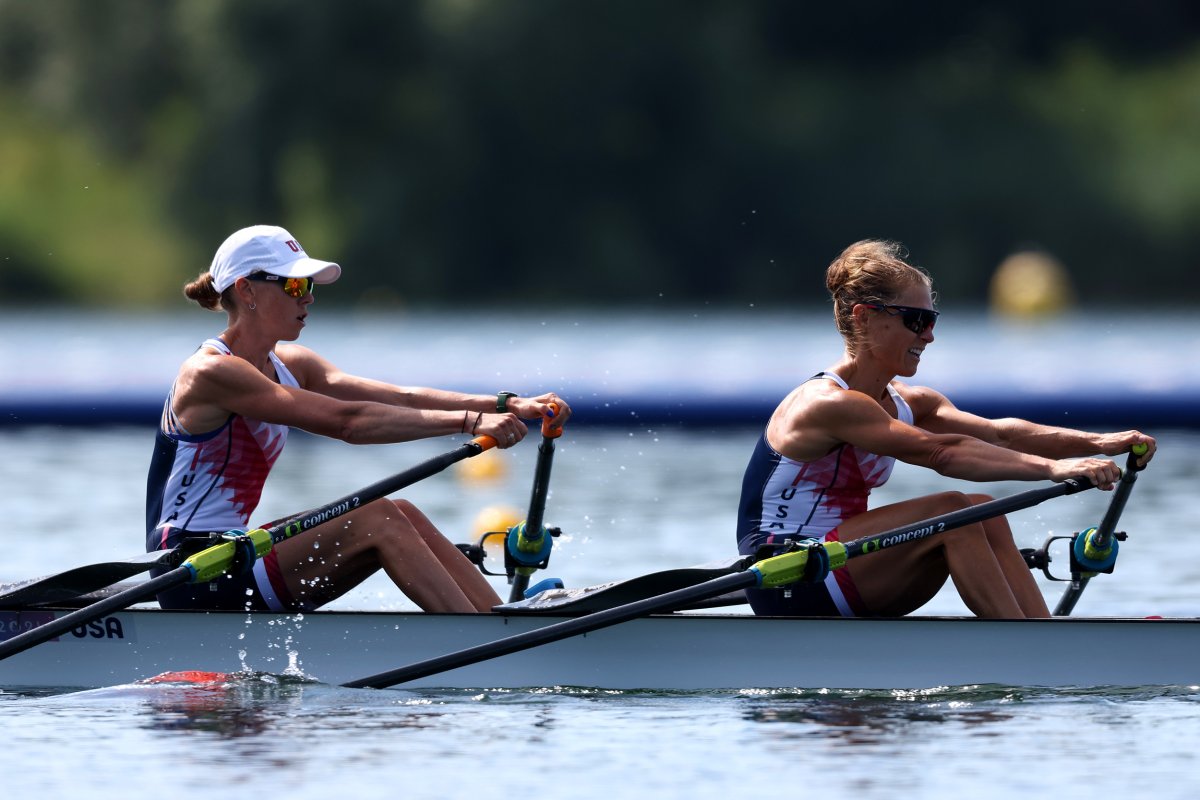
The rower Justin Best is in Paris competing as an Olympian for a second time, attributing his success on the water to helping his career in finance.
“Rowing is a sport that can unlock so many doors,” Best told the Chester County Press prior to his first Olympic appearance. “All the elite colleges have rowing programs. It can really open up a lot of opportunities.”
After being selected to compete in Tokyo 2020, he took advance of the one-year pandemic delay to finish his degree. Now, when he’s not rowing, he works as an investment analyst.
Track and field star Gabby Thomas has long had dreams of a career in health care. In addition to the individual bronze and team silver medal she picked up in Tokyo, Thomas has a Harvard undergraduate degree in neurobiology as well as a master’s degree in public health from the University of Texas.
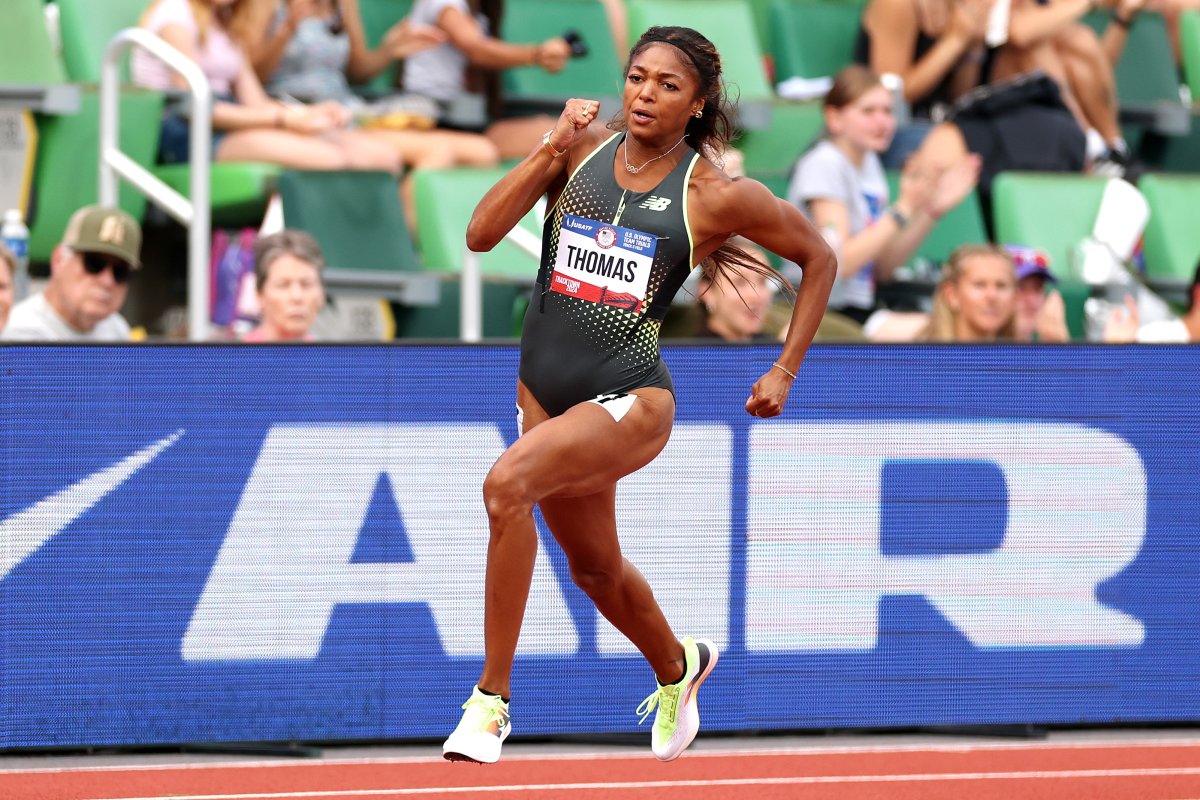
Fink, the silver-winning swimmer, is one of a handful of Team USA athletes who juggle careers in the high-stress field of engineering. Kelsey Bing, a women’s field hockey player, spends majority of her week as a guidance, navigation, control engineer at Joby Aviation. Rock climber Jesse Grupper is a mechanical engineer. Canyon Barry, who is on the 3×3 basketball team, works for global aerospace and technology company L3harris as a systems engineer.
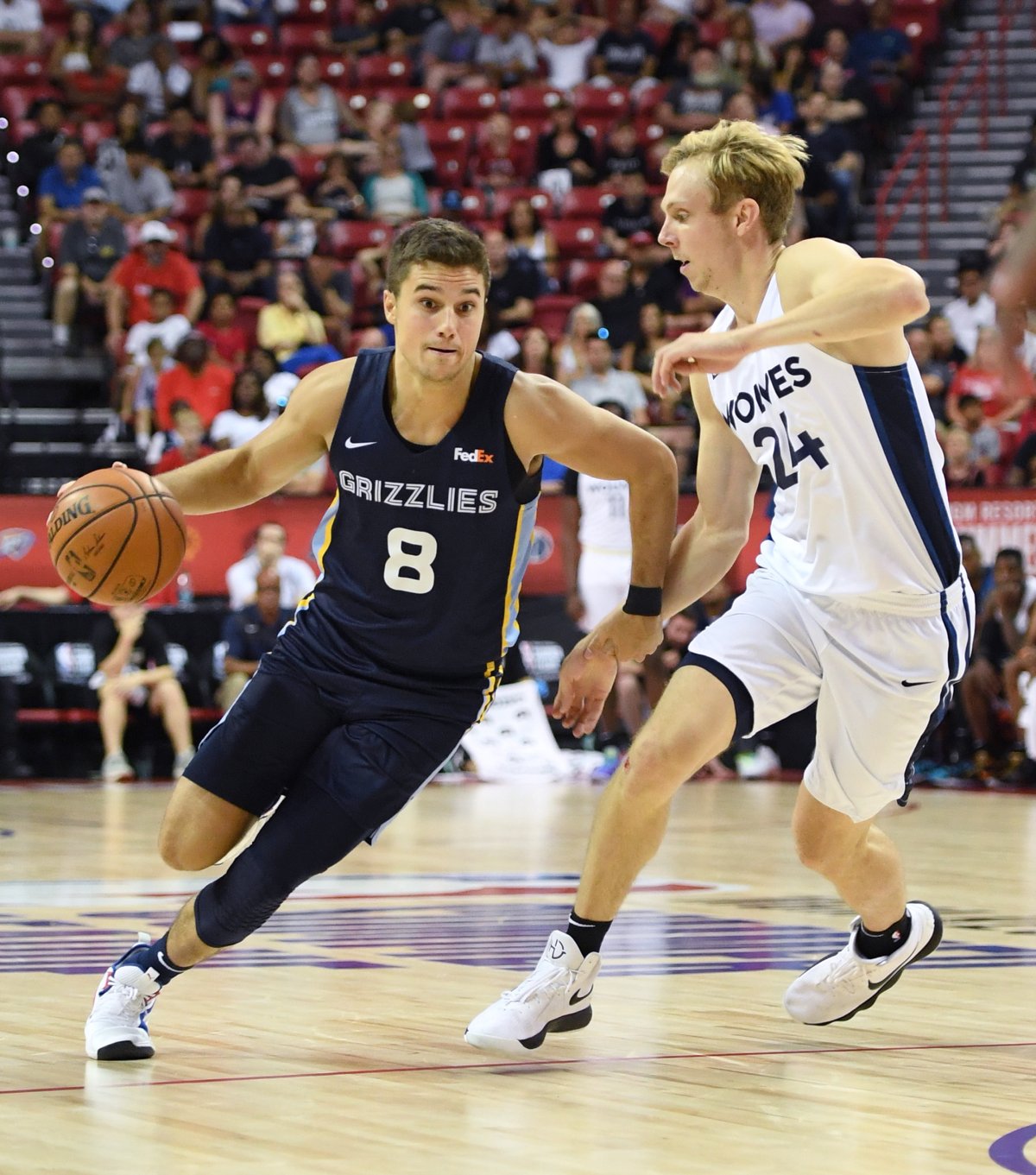
“I think a lot of athletics parallels engineering or high achievement,” Barry told USA Today.
“Just what drives you to be a great athlete, I think drives you to succeed in the professional workplace, whether it’s time management, leadership skills, being a part of a team, having drive, working through adversity, all those are very applicable to other aspects of life.”
Do you have a story Newsweek should be covering? Do you have any questions about this story? Contact LiveNews@newsweek.com.
Newsweek is committed to challenging conventional wisdom and finding connections in the search for common ground.
Newsweek is committed to challenging conventional wisdom and finding connections in the search for common ground.